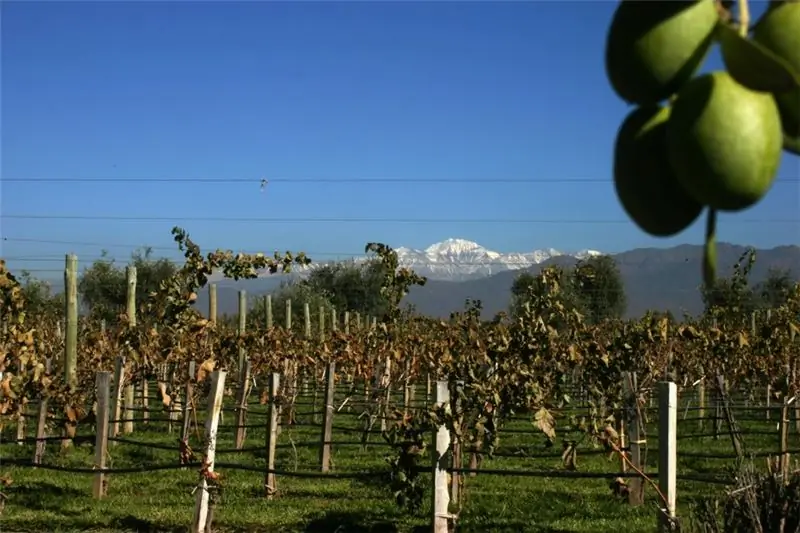
The history of Argentine winemaking goes back more than four centuries, and during this time local masters have accumulated a wealth of experience in the production of a quality product. The country owes its first vineyards to the Spanish missionaries, who could not imagine their life on a distant continent without vine and wine. The French and Italians who arrived then made their contribution to the winemaking business, and therefore the wines of Argentina are the fruit of the labor and love of many generations of people of different nationalities.
Argentinean features of winemaking
Many varieties are grown in the country, which were brought from the Old World and have successfully taken root in a new place. Spanish Macabeo and Garnacha peacefully coexist on the slopes of the local hills with the Italian varieties Dolcetto, Nebbiolo and Barbera. German Riesling no longer competes with French Chardonnay, and the red varieties Merlot and Cabernet Sauvignon seem international at all.
The climate and natural conditions of Argentina made it possible to single out a true "royal" couple among the whole variety of grape varieties, and today Argentine wines are blended mostly from Malbec and Torrontes varieties.
Until the 80s of the twentieth century, the wine industry in Argentina was mainly focused on local needs, but now the products of local winemakers successfully crowd out their European and American counterparts on the international market. Argentine vineyards are the highest in the world. Such cultivation conditions have to be observed due to the arid climate.
For every taste
The following varieties are most commonly used in the production of wine in Argentina:
- Red Malbec, whose homeland is France. The quality of Argentine wine made from Malbec, according to oenologists, surpasses its French counterparts. Wine from Malbec has a powerful aroma, rich color and gives gourmets a true delight in raspberry, pomegranate and even chocolate flavors. The varietal wines of Argentina from such fruits have great aging potential.
- The white variety Torrontes is aromatic and makes it possible to prepare wines with an unusually bright bouquet, in which experienced gourmets distinguish shades of acacia, linden and jasmine. A rich peach aftertaste and shades of barrel aging make wines made from Torrontes berries exquisite.
- It is customary to prepare wines of Argentina from the red fruits of Tempranillo, which are suitable for long aging in oak barrels, which is why their taste contains notes of coffee, prunes and even Cuban tobacco.






